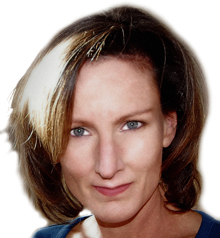It Could Be Worse
Pardon me. I am distracted from TV right now, and I don’t mean that ironically. It has been brought to my attention that I am coming into the ownership of several banks.

This is the best news I’ve had for a long time. I have always wanted to own a bank. I don’t remember any bankers’ daughters back in Cozad, Neb., wearing cheap anklets that slid down into their shoes. I do not believe their fathers cut their hair with barber scissors and a bowl. I don’t think their mothers cut the toes out of their sneakers when the shoes got too small.
We did these things in my family because we did not spend money. All of our money was in the bank because my folks lived through the Great Depression, an oxymoron if there ever was one. From what I hear, it was not so great. People were hungry. They were not battling cellulite.
The experience left my parents obsessively frugal. If Congress were managed like their household budget, Capitol Hill would be crawling with balloon-tired vintage Schwinns held together with twine over peeling duct tape. And there would be no whining unless someone would prefer to walk. Lawmakers who felt it necessary to spend money to keep up appearances would be asked, “if your colleagues from across the aisle jumped off a bridge, would you do it too?”
There’s a lot to be learned about money from not having any. You learn what you can do without. You learn to be resourceful. You come to understand that you are not spiritually deficient if you can’t build savings on $10 an hour. You learn that there is nothing “easy” about “credit.”
Borrowing money against future earnings or the value of an asset is a gamble. We’ve all done it; we’ve all had to do it--to pay for an education, buy a home, start a business, grow an enterprise. But economies micro and macro resemble organic systems. There is a level at which they can be sustained, beyond which, they erode.
If I had accepted every credit card ever offered me, and bought the ranch house with the swimming pool during the boom, I, too, would be sliding precipitously. But I did not, because it made no sense and had nothing to do with my fear of commitment no matter what you may hear.
So how it is that I am clearly a more competent economist than an army of MBAs and banking executives would seem to be a matter of common sense. But it’s not. It’s a matter of scale. There are thousands of solvent community banks across this country that have been managed properly and will not see dime one from the federal government’s $700 billion bail out. That cash is for the elite Wall Street firms whose demise would supposedly cripple the global economy, not for people who ran their businesses responsibly.
There is an old saw about taking on so much debt that the bank will never let you go insolvent. I’ve heard grown men exhort it without even realizing they sound like children bragging about gorging on candy then throwing up. I’m looking forward to being their banker.
The professional video industry's #1 source for news, trends and product and tech information. Sign up below.
